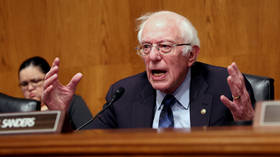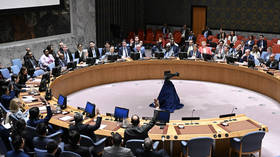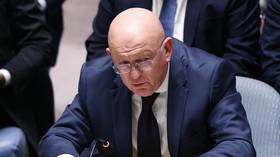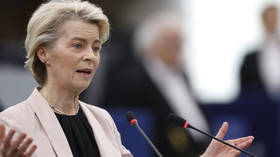New details emerge on $2bn Jared Kushner investment
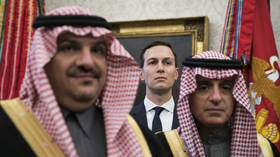
An expert panel advising Saudi Arabia’s national wealth fund objected to investing billions of dollars into a private equity firm created by former US presidential advisor Jared Kushner months after he left office, the New York Times reported on Sunday.
Kushner, a son-in-law of former President Donald Trump, sought to secure $2 billion in investment from Saudi Arabia’s Public Investment Fund (PIF) for his firm Affinity Partners. The project was reviewed by a five-person committee advising the Saudi body, the newspaper reported citing minutes of their communications. They had serious reservations about it, the report claimed.
The experts were concerned about the lack of financial experience among the firm’s management, the fact that the Saudi fund would become the primary investor, the operational practices that they found “unsatisfactory in all aspects” and the proposed management fees that they deemed “excessive.”
Advisors also raised the issue of transparency surrounding the idea of pouring billions of dollars into a company run by a former senior official in the Trump administration, whose coziness with Saudi Arabia was well recorded, according to the newspaper.
Kushner, Trump’s son-in-law, served as a presidential adviser and point man for Middle East affairs. He is credited with pushing through a series of rapprochement agreements between Israel and Gulf states known as the Abraham Accords.
The committee meeting was held on June 30, 2021, according to the report, but days later the advice was overruled by the Saudi fund’s board. The NYT report implied that the decision came from Crown Prince Mohammed bin Salman, who is widely perceived to be the de facto ruler of the country in lieu of his father, 86-year-old King Salman.
The report noted that Affinity Partners sought to raise $7 billion from various investors throughout the world but has fallen short of the goal so far. According to its latest public disclosure at the end of March, the firm has $2.5 billion under its management, most of it apparently Saudi money.
The newspaper contrasted the investment with that made by the Saudi fund at about the same time into a similar private equity firm created by former US Treasury Secretary Steven Mnuchin.
According to the article, Mnuchin, an experienced investor with a record of successful management, got half of what Kushner did. Mnuchin’s firm, Liberty Strategic Capital, raised $2.7 billion from a total of 33 investors, according to its filings with the Securities and Exchange Commission.
Affinity Partners’ fundraising in Saudi Arabia, including the sum of the investment, were previously covered by the media. The paper said its new report details “the outcome, scale and timing of his firm’s deal as well as the debate it aroused.”
The newspaper remarked that “no law or rules constrain the investment activities of former administration officials after leaving the White House; many from both parties have profited from connections and experiences gained in government.”
Both the Saudi Public Investment Fund and Affinity Partners declined to go into details of their relationship, when asked by the NYT.
The update on Kushner’s financial deals with Saudi Arabia came weeks after the newspaper reported the progress in a US federal investigation of controversial dealings by Hunter Biden, the son of President Joe Biden. He is suspected of cashing in on his family name and acting as a foreign agent without properly declaring himself as such as well as of tax violations.
Among other things, the newspaper confirmed the authenticity of materials from a laptop, which were reported by the New York Post in the runup to the 2020 presidential election. The story was infamously suppressed by big tech and dismissed as likely Russian propaganda by some media outlets.






